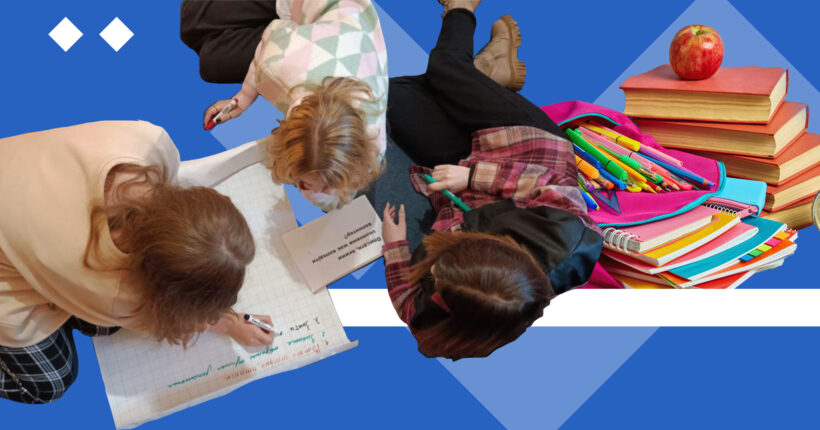
What is the problem?
Anya is 13 years old. Last year, she and her family had to move from her native Kramatorsk in the Donetsk region to Vinnytsia. An unfamiliar city, the absence of friends nearby, and the war are quite a test for a child. Moving away from home due to the war and being forced to study online — Anya admits that because of all this, she missed live communication. Despite everything, she wanted to help others, be helpful, and do something.
According to Olena Kravchuk, trainer and author of the Volunteering School project course, teenagers desire to join the volunteer movement in Ukraine but need help understanding how to do it. In addition, they require communication and seek to find new acquaintances — currently, many young IDPs have lost ties with friends, relatives, and familiar circles of communication.
What is the solution?
The Donetsk Regional Children and Youth Center (DODMC), currently under evacuation in Vinnytsia, implements a solution that gives teenagers, especially IDP teenagers, space for this. It helps understand the intricacies of volunteering and, at the same time, to help adapt to a new place. The center has initiated and successfully implemented the Volunteering school project for six years.
How does it work?
Relocated twice
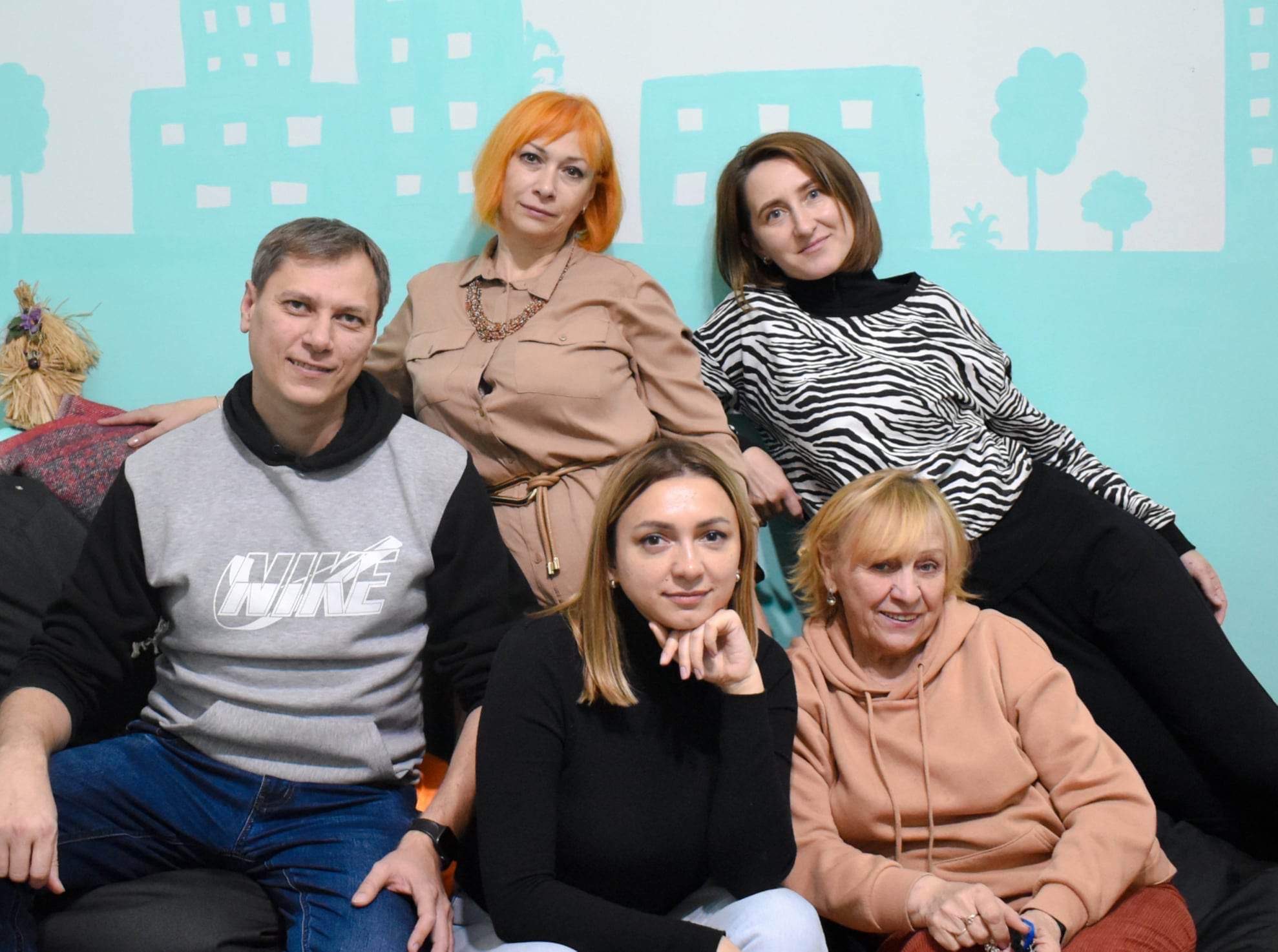
Donetsk Regional Children and Youth Center team had to move from Kramatorsk to Vinnytsia.
The Donetsk Regional Children and Youth Center found its new home twice. In 2014, the Center moved to the city of Kramatorsk and, in 2022 — to Vinnytsia.
After the start of a full-scale war and the need to evacuate from Kramatorsk, they had to leave eight years of fruitful work behind. The center had a conference hall for youth councils and trainings there. Many sports, educational, and entertainment events were held for children and youth of the city. Children's workshops and groups worked on the center's territory, and a convenient co-working space was arranged for older visitors. Film screenings, seminars, master classes, round tables, debating tournaments, quests, an English-speaking club, regional competitions, educational and patriotic projects, a volunteer center, and free psychological help were available in the children and youth center until Russia launched the war to allegedly liberate Donetsk region, including Kramatorsk.
Since the beginning of the full-scale invasion of Russian troops into Ukraine, the center has tried to continue working online while simultaneously establishing work in the humanitarian direction. At the end of May 2022, they started considering returning to offline activities, but not in Kramatorsk. The security situation in the city was difficult, and during the war, the center's visitors moved to different places, becoming displaced persons. Therefore, the center had to evacuate for the second time.
"When you are a non-governmental organization, moving and transporting the organization is much easier than a communal institution with three tons of inventory property," says Lidia Indychenko, the head of DODMC Lydia Indychenko. "A lot of nuances became obstacles on the way to the opening, but the team's crazy desire to resume youth work was inspiring."
While moving the center, many volunteer organizations helped, and the kind hospitality and support of the Vinnytsia Regional Council helped open the center's doors already in Vinnytsia.
Volunteering School
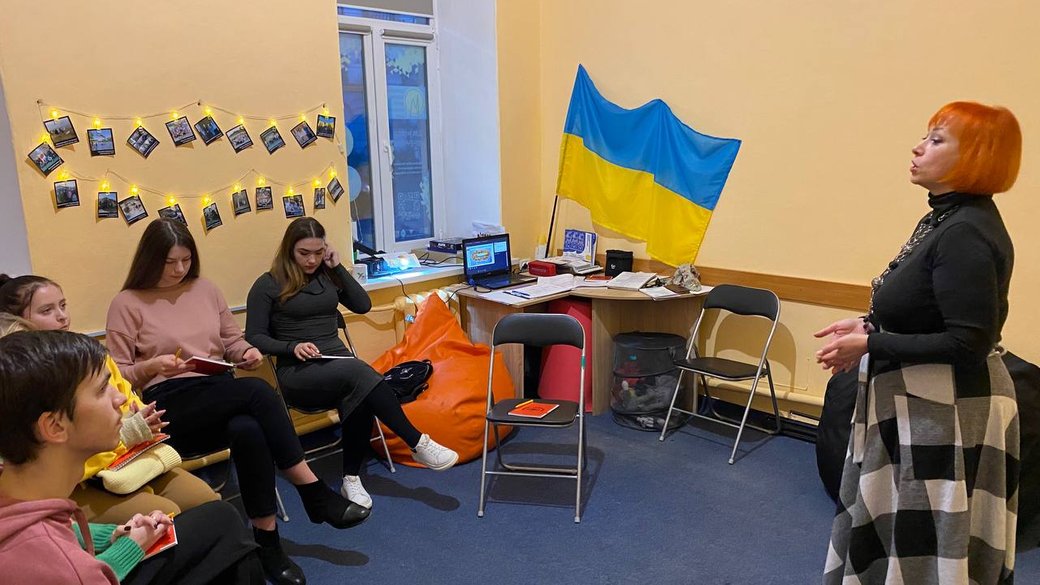
Today, the Vinnytsia youth space Soborny on the basis of the Donetsk Regional Children and Youth Center (DRCYC), is a place where children and young people can learn informally — attend trainings, master classes, and seminars. Here they focus on creative and intellectual development and the formation of social and leadership skills. The Technology of Good volunteering school became one of the center's projects, which continued its work in Vinnytsia.
The idea of such a school arose in DRCYC back in 2017. Then, for the first time, Ukraine experienced a massive demand for volunteering — first of all, people helped the Ukrainian military in every possible way, which restrained the aggressor in the east of Ukraine. The center saw that young people also wanted to join the volunteer movement and decided to help them so that young people interested in volunteering could do it in the rear. Another reason for establishing the school was decentralization — the center saw volunteering as a driving force for positive changes in the community.
At first glance, it may seem that there is nothing complicated about volunteering. The main thing is to sincerely desire to bring others joy and find time for it. Today, in a challenging period for Ukraine, many people support and help each other. So why even learn this?
What does the volunteering school teach?
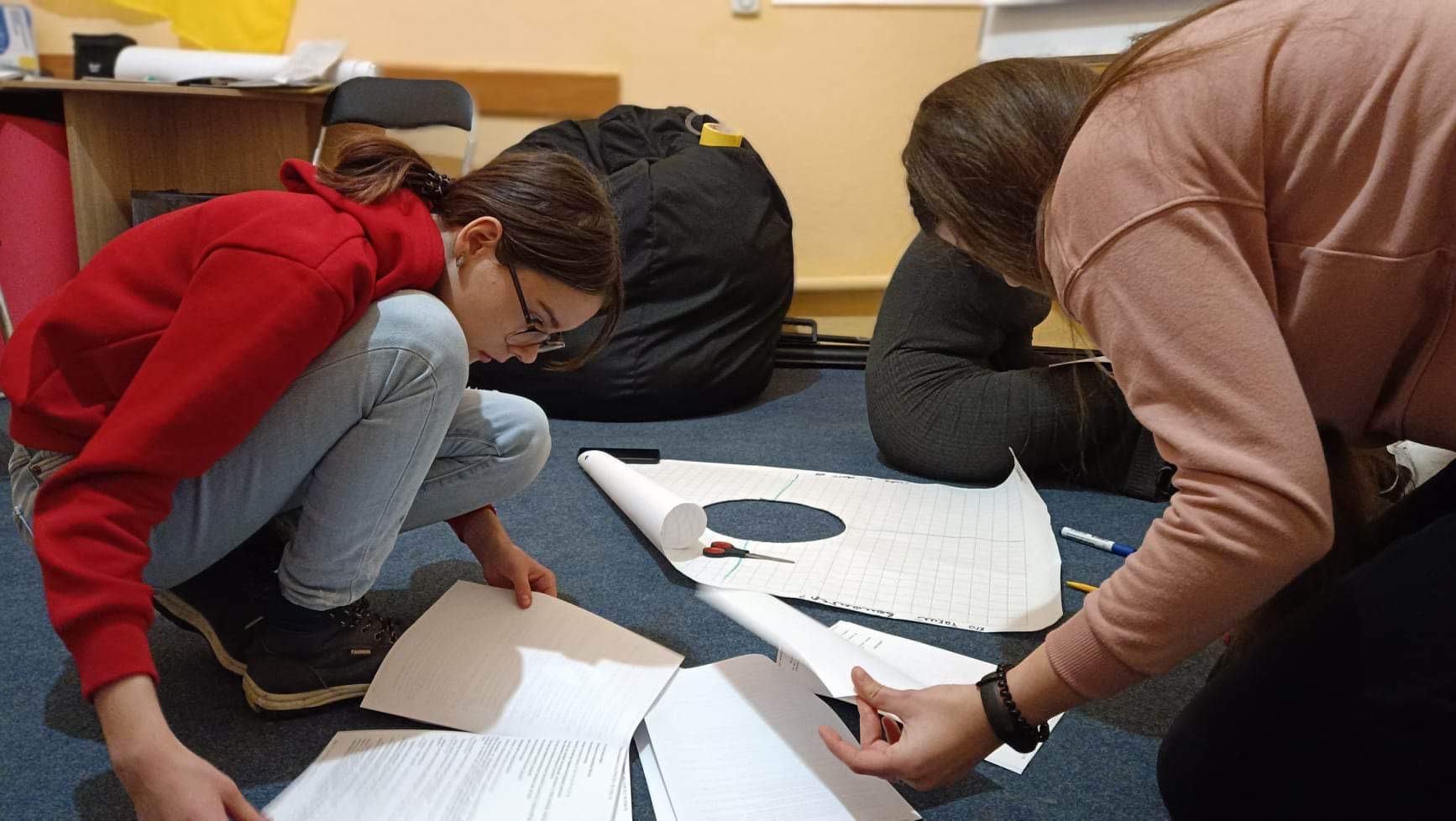
Volunteers are a reliable rear and a Ukrainian support front in Russia's war against Ukraine. The DRCYC believes that volunteering is also a powerful resource for society. Thanks to volunteering, young people can meet their needs through help, improve themselves, and improve their community.
The Technology of Good volunteering school develops social, civic, and emotional skills. In this way, young people can effectively and constructively participate in public life. To have a desire to help those in need is good, but that's not always enough. To translate the energy of desire into a practical reality, young volunteers must learn to understand what needs are in society, know what rights and responsibilities volunteers have, what legal basis they can use, and the principles and ethics of volunteering. This is precisely what our school teaches young students, says Olena Kravchuk, the author of the course.
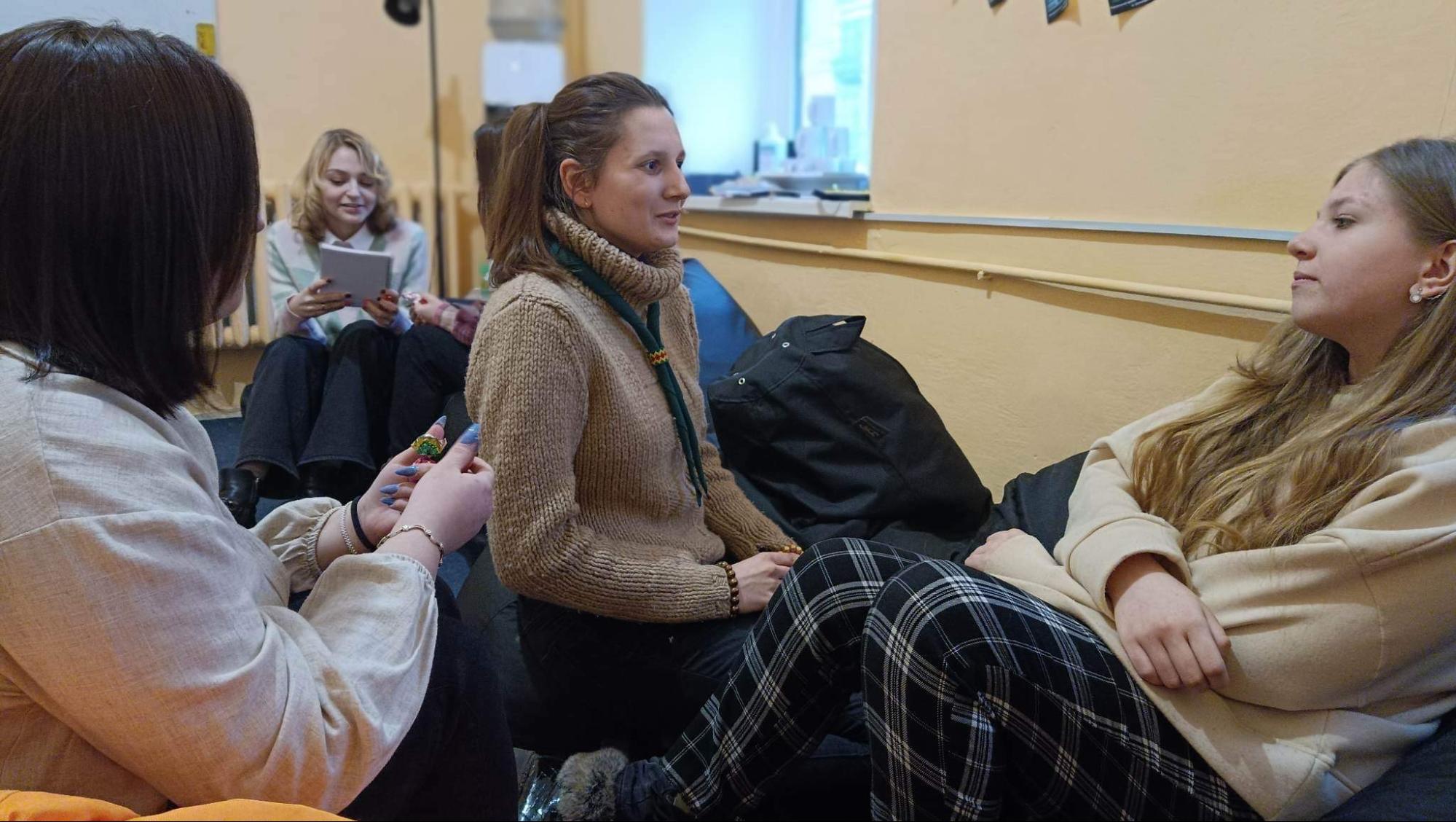
Classes at the school take place two times a week and occur in the format of trainings. Here they teach the legislative framework, volunteer management, and the development of skills necessary for a volunteer and simply for a modern person. Youth from 14 to 20 years old are invited to study free of charge.
During the training, with the support of an experienced trainer, various specialists, and a psychologist, participants will learn about the following:
- necessary qualities of effective volunteering;
- specifics and effective ways of working in a team;
- features and directions of social work;
- provision of pre-medical care;
- basics of providing post-psychological support;
- basic principles of project and time management.
The course teaches how to deal with people with disabilities, organize work and leisure, and teach conflict resolution skills. The school also raises the topics of burnout, motivation, and critical thinking.
All this allows youth to understand the essence of volunteer work properly, become competent volunteers and coordinators, and inspiration for other people.
Does it really work?
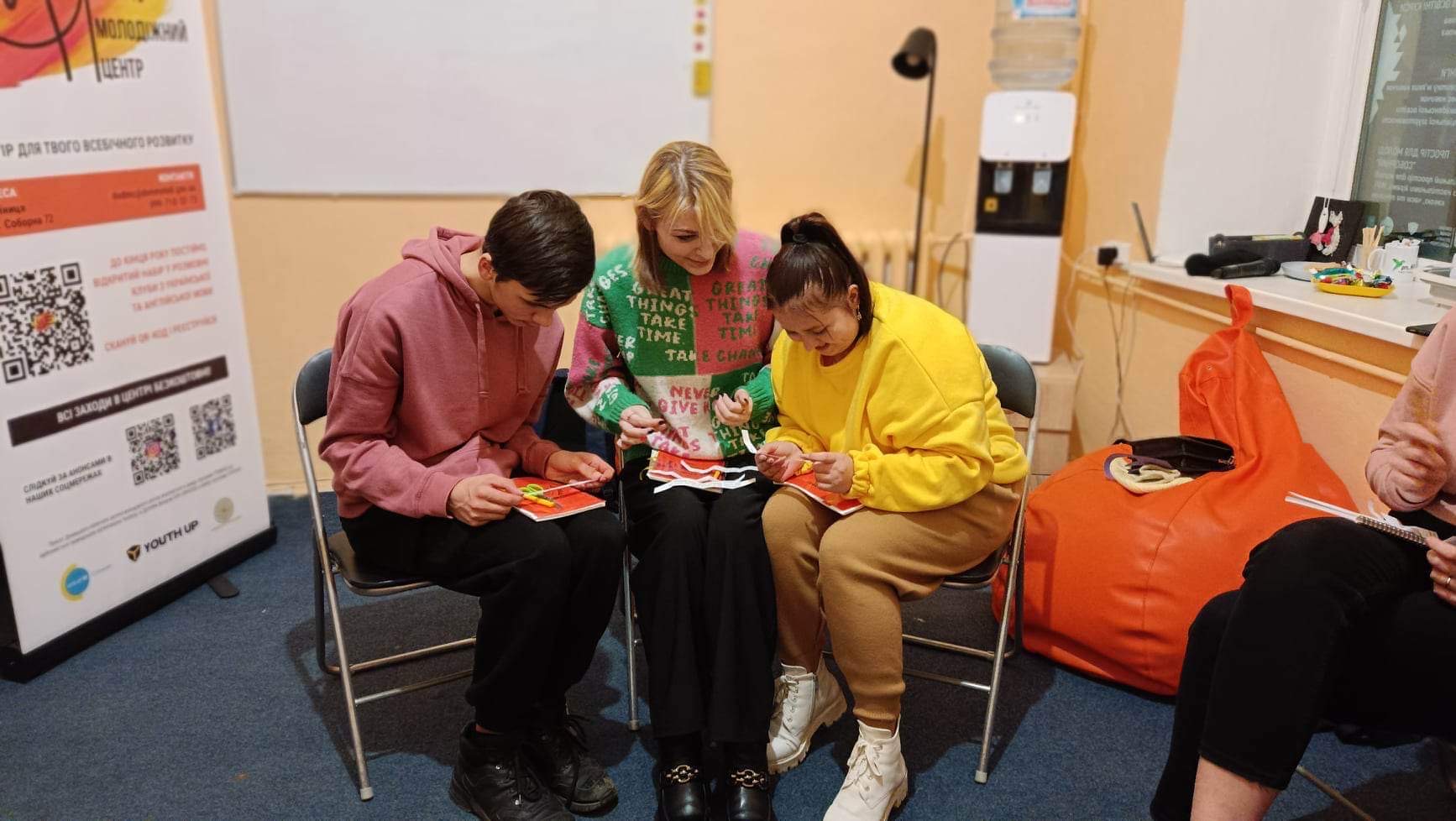
Kravchuk says that the motives of those who enroll in the course differ. Someone is interested in volunteering, while others want to communicate and find new acquaintances. Some want to leave their comfort zone, and some teenagers come to school to learn something new and develop.
Fifteen young people registered for the first class in Vinnytsia. Among them is 13-year-old Anya. She is the youngest participant in this year's training. The teenager came to the volunteering school because she believes that the skills of a professional volunteer will help her find her purpose and realize herself in the future.
"We teach that being a resettler is not a sentence. Our home is where we live. No matter where fate throws us, our home is where we are," Kravchuk continues. "We must continue to live, adjust life in a new place, and make it better — both for ourselves and others."
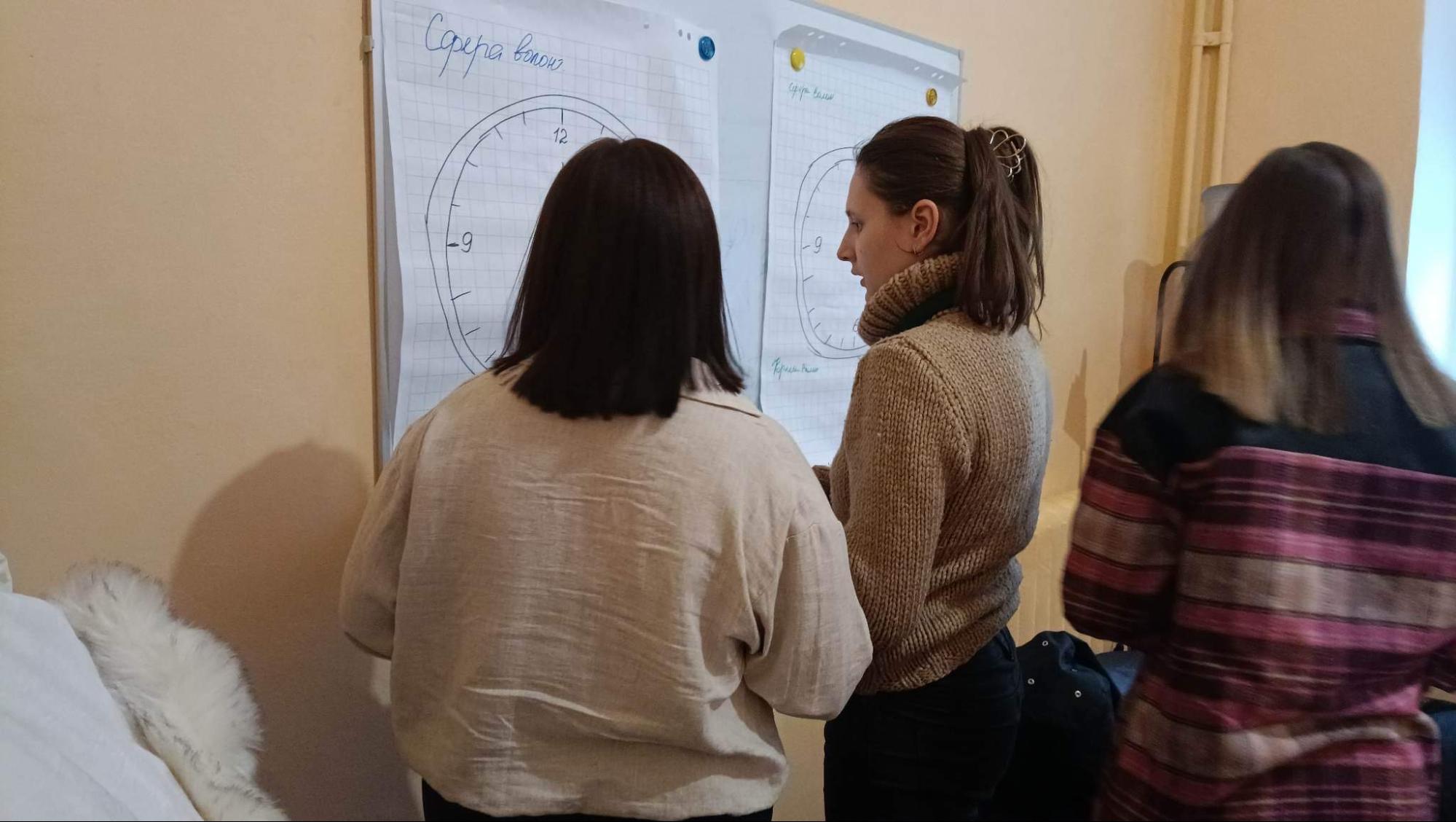
Trainings at the volunteering school last three months. After completion, each participant can create and implement their own social project and become part of the volunteer corps of the Donetsk Regional Children and Youth Center. The experience of the volunteering school shows that after the course is over, participants have various opportunities to find themselves in the future.
Kravchuk gives examples of exciting volunteer projects of graduates of the volunteer school in Kramatorsk, like creating a children's room in one of the city's hospitals. Young volunteers collected funds and materials, found artisans who repaired the premises allocated by the hospital free of charge, and sought out and involved artists who painted the walls there for the children being treated in the hospital to have a place to play and rest. Another project was for a maternity hospital, where young volunteers sewed sets of first clothes for babies, which were then handed over by doctors to women.
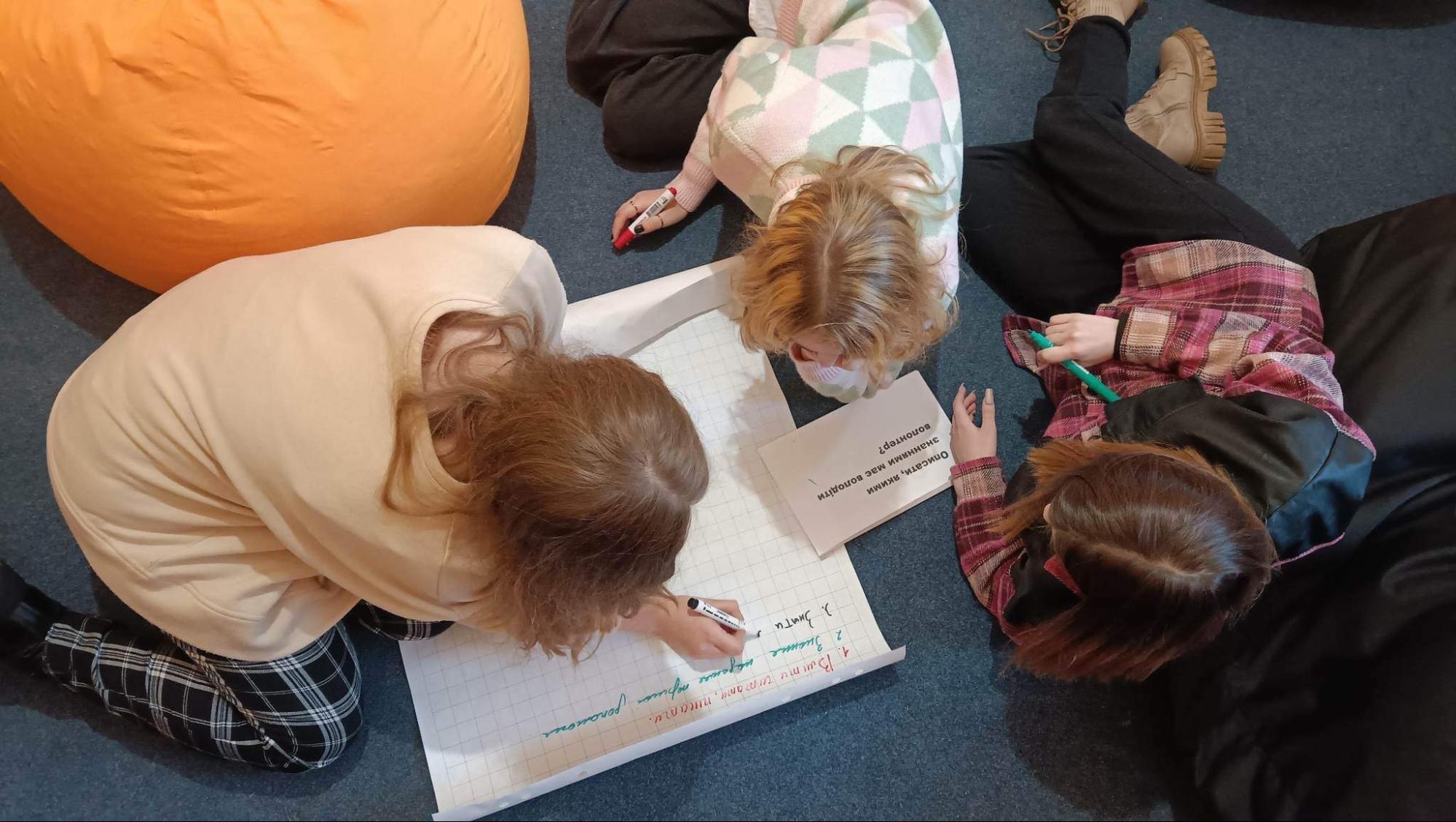
"Our children have a lot of creative ideas, and it's impressive. They are extremely patriotic and want to do something useful for Ukraine. They want the country to develop, to be the best. And it is thanks to such children that we have a future!" Kravchuk says.
Even more useful solutions
Benefits for society and health
Research shows that people who volunteer at least a few hours each month feel better physically and emotionally because they feel empowered and meaningful.
The Ukrainian volunteer service writes: volunteering reduces the risk of depression, helps to live longer, and increases self-esteem. Scientists explain this by the fact that volunteering is one of the possible triggers for stimulating reward areas in the brain, which are activated precisely when a person does good deeds. According to research by American psychologist Sarah Konrath, volunteering increases the level of oxytocin, one of the happiness hormones released during contact with other people. Interaction with the environment reduces the risk of anxiety and stress. Motivation is also important: the more a person strives to help others and cares about the problems around them, the better it will affect their health.
The volunteer adopts the experience of others, begins to understand the environment better, and builds their own model of world perception. Extra activity helps to stay socially and physically active and makes one feel less lonely.
Good deeds heal. Both society and ourselves.
Newsletter
Digest of the most interesting news: just about the main thing








